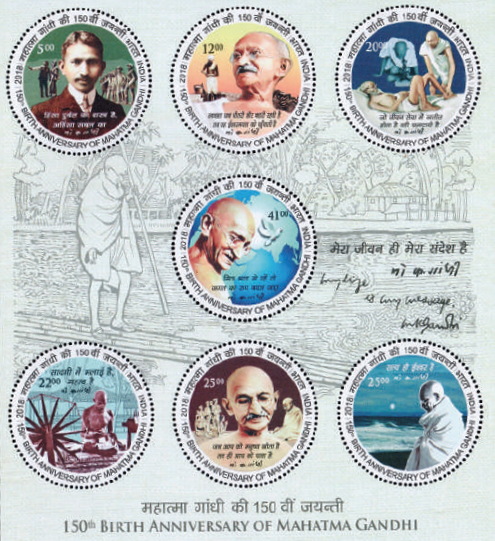
Everything that Gandhi said shows that he was primarily a seeker after God, Truth, the Ultimate, and a politician because this led him into the service of his fellows and so into conflict with any form of injustice. For him there was in practice no division between religion and politics, for true religion expresses itself politically, and the only way to achieve lasting political change is through the inner transformation of masses of individuals, beginning with oneself. The great aim of his life was, in his own words, to ‘see God face to face’, though seeing God face to face ‘is not to be taken literally… God is formless.’ And the place where he ‘saw’ God was in responding to the needs of the poor, the downtrodden, the marginalized, the outcastes. He says of his time at Champaran, no exaggeration, but the literal truth, to say that in this meeting with the peasants ‘I was face to face with God, Ahimsa and Truth.’ And so he could say that his great aim, which he believed should be everyone’s aim, was to attain the inner liberation that expresses itself in love for all. When a foreign visitor once asked him why he was spending his life on behalf of India’s poverty-stricken villagers he said, “I am here to serve no one else but myself, to find my own self-realization through the service of these village folk. Man’s ultimate aim is the realization of God, and all his activities, social, political, religious, have to be guided by the ultimate aim of the vision of God. The immediate service of all human beings becomes a necessary part of the endeavour simply because the only way to find God is to see Him in His creation and to be one with it. This can only be done by service to all.” In the Truth that he encountered there was ultimately no distinction between one’s own salvation and that of others.
John Hick in The Fifth Dimension: An exploration of the spiritual realm
Image: A miniature sheet issued by India post in 2018 to commemorate the 150th birth anniversary of Mahatma Gandhi.
